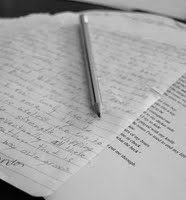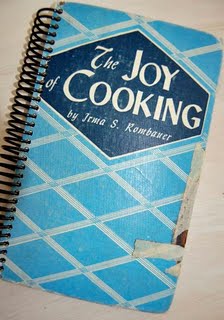 You know the saying: You can never be too rich, too thin . . . or have too many journals.
You know the saying: You can never be too rich, too thin . . . or have too many journals.
Gifts to give (and keep)
Susan Miller, astrology master of the universe, has strongly advised that I (well, not just me but Pisces worldwide) wrap up holiday shopping by December 9. That's just two days!
Given that Halloween seems like it was just last week, and that Thanksgiving came in a rush of gravy, I've really gotta get on the stick. In my consumer panic, I've gone keyboard crazy. In the last few days I've discovered some great treasures, and strangely they each have a writer/artist theme, making them great gifts to give — and keep!
Today's treasure combines my favorite things — words and art:
Portland, Oregon artist Trish Grantham paints directly on the pages of old books (a page from a 1935 Webster's Dictionary, for example, pictured here), to create layered pieces rich with history, texture and playfulness.
Using acrylic and watercolor paint, Grantham creates a cast of doe-eyed, anime-like people, animals and anthropomorphized objects (like a charming slice of bread).
Grantham's works are wonderfully original and affordable (paintings from $42; cards at $1.20) See her paintings here, and notecards here.
I've been to this party
"I read and write poetry to remind myself that I have a soul that needs a periodic tuneup."
Events
• Happy Hour for Young Readers & Writers
Wednesdays, 4:30 to 5:30pm
• The Writing Club — for middle school students
6th, 7th, 8th grade
Thursdays, 4:30 to 5:30pm
A fun and engaging way for students to explore creative writing through word games, crafts, poetry and prose. This group is offered through the 21st Century After School Program. Register by calling Melaia Kilduff, Center coordinator, 541.563.3476.
• Writers Group – for high school students9th, 10th, 11th, 12th grade
Thursdays, 6 to 8pm (includes dinner)
Students generate fresh poetry and prose during this free, weekly session of revved-up writing practice. In this supportive setting, young writers share their work with the group, and enjoy feedback from adult mentors and peers. This activity is free and offered by Seashore Family Literacy. Register by calling Drew Myron, instructor, 541.547.3757. Group is limited to 12 students.
For more information, contact:
Drew Myron, instructor, dcm@drewmyron.com

Starting Here: A Stafford Celebration takes place on Saturday, January 23 at the Green Salmon Tea & Coffeehouse in Yachats, Oregon. Doors open and music starts at 6:30pm. The reading performance begins at 7pm. Admission is free and open to all ages.
Oregon writers will read a Stafford poem, as well as one of their own pieces written in the spirit of Stafford's works. In addition, members of the audience are invited to read a favorite Stafford poem or to tell a personal anecdote about the late Oregon poet laureate.
Featured writers include: Ingrid Wendt and Ralph Salisbury of Eugene, Flip Garrison of Lincoln City, Ron Brean of Yachats, Khlo Brateng of South Beach, and Drew Myron. Richard Sharpless, of Yachats, will provide music.
This free event is in conjunction with The Friends of William Stafford, a nonprofit organization providing education in literature, particularly in poetry, in a way that will encourage readers, writers and those who aspire to find their own voice. In 2009, there were 60 Stafford celebrations held in Oregon, Washington, California, Kansas, New Jersey, Texas — and Malaysia, Scottland, Mexico and Japan! This event marks the first Yachats celebration.
About William Stafford

William Stafford was one of America's most prolific poets, authoring 67 volumes in his 79 years.
His first book of poetry was published in 1960 when he was 46 years old. Just three years later, in 1963, he won the National Book Award, and later won the Shelley Award from the Poetry Society of America, served as the Poetry Consultant for the Library of Congress, and was appointed Oregon Poet Laureate in 1975.
Stafford had a quiet daily ritual of writing. His poems, typically short, have a “steady quiet,” focusing on the earthy, accessible details. He kept a daily journal for 50 years, and composed nearly 22,000 poems, of which roughly 3,000 were published.
A pacifist, Stafford was a conscientious objector during World War II. He was confined in Civilian Public Service work camps in Arkansas and California, where he did work for the U.S. Forest Service. For the following fifty years, Stafford included poems of pacifism and reconciliation in his readings.
He taught at Lewis and Clark College, and traveled thousands of miles each year to give readings and to encourage aspiring poets throughout the United States, Egypt, India, Bangladesh, Pakistan, Iran, Germany, Austria, Poland and many other countries.
Stafford was always "listening for the next sound," and "rubbing words together until something sparked." About his work, he once said, "I have woven a parachute out of everything broken."
Stafford died of a heart attack at his home in Lake Oswego on August 28, 1993. He was 79.
You Reading This, Be Ready
William Stafford
• • •
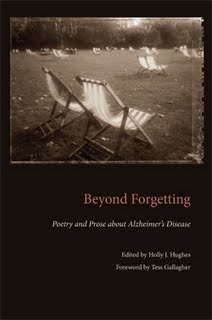
A free reading event
Saturday, September 19 at 3pm
Looking Glass Bookstore
7983 SE 13th Avenue
Portland, Oregon
503.227.4760Featuring:
Tess Gallagher — author of the foreword
Holly Hughes — editor
& contributing writers:
Alice Derry
Joseph Green
Kake Huck
Judith Montgomery
Drew Myron
Paulann Petersen
Mark ThalmanRead about the book and event here. • • •
To November
Book binge



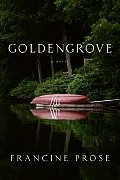
I haven't written a thing. For the last two weeks with the exception of a short grocery list and a quick thank you, I have not crafted a single sentence of meaning or merit. I have been on a book binge instead.
To live the question
A young friend and I exchange letters.

Have patience with everything that remains unsolved in your heart. Try to love the questions themselves, like locked rooms and like books written in a foreign language. Do not now look for the answers. They can not now be given to you because you could not live them. It is a question of experiencing everything. At present you need to live the question. Perhaps you will gradually, without even noticing it, find yourself experiencing the answer, some distant day.
— Rainer Maria Rilke, Letters to a Young Poet
November light
The garden is forgotten
in November’s thin light. Shadows yawn
sad and I am surrounded by things we
covet, yet forget:
sunflowers, a tomato’s full curve, the snap
of carrots — wilted from a rigored season.
Now tomatoes lie bruised, sunflowers quiet
and leggy. Even the crabgrass is worn with
effort. Something inside me swells in
this frail autumn glow. I don’t know if
it is fatigue or forever.
The Art of Elimination

Kick off the weekend with a Newspaper Blackout Poem poem by writer-designer-cartoonist Austin Kleon. I can't wait for his book, scheduled for release in April 2010.
oregon autumn
Lost & Found
Sometimes a book keeps coming back. You read it once, love it, pass it on or set it aside. Years later, it resurfaces on your friend's kitchen counter or in the doctor's office. You are flushed with memory and love. You invite it in, hope that it holds the same allure. Fifteen years ago, in a season of serious illness, crushing love and profound sadness, I found solace in a beautiful book passage. I made copies, pasted the words in my journal and read them again and again. I wrapped myself in the comfort of clarity, if even for just moments at a time. Last week, I loaded up for winter reading. As daylight wanes my reading time lengthens. At the used bookstore in town (Mari's Books, a closet-size shop packed with unexpected gems) I filled my arms with new material. Just before leaving, I spotted the book that made me feel less alone so many years ago. I embraced the book like an old friend, dashed home, pawed through pages and found my favorite passage once again. Tears You never know what may cause them. The sight of the Atlantic Ocean can do it, or a piece of music, or a face you’ve never seen before. A pair of somebody’s old shoes can do it. Almost any movie made before the great sadness that came over the world after the Second World War, a horse cantering across a meadow, the high school basketball team running out onto the gym floor at the start of a game. You can never be sure. But of this you can be sure. Whenever you find tears in your eyes, especially unexpected tears, it is well to pay the closest attention. They are not only telling you something about the secret of who you are, but more often than not God is speaking to you through them of the mystery of where you have come from and is summoning you to where, if your soul is to be saved, you should go next.
Like, totally, whatever, you know?
Today's entertainment courtesy of Taylor Mali.
So, what do you write?
From cocktail parties to client meetings, the question is inevitable: What do you do? followed by, What do you write?
I always fumble for an answer. Am I a journalist? a freelance writer? publicist? poet? instructor?
I am all of these, in succession and all at once. But “I’m a writer/marketing professional/instructor . . . ” is an unwieldy response that is returned with wrinkles of doubt and a swift walk away from the babbling woman who lacks a sense of self.
I am a former newspaper reporter and editor, and I run a marketing communications firm that promotes businesses and organizations. I am a poet, published in journals and books. I work with youth, leading writing groups and classes. I am an occasional travel writer. I write ad copy for agencies. To add to the confusion, the other evening I was introduced as a blogger.
It gets too much to explain. This writer’s role is full and assorted. Most writers-for-hire (which sounds crass and commercial but does make a point) juggle a variety of clients, topics and titles.
So what do you call the writer who has not written a best-selling novel (and has no such plans) but still uses words to explain, ignite, assist and inspire?
At WordCount, Michelle Rafter proposes the end of “freelance writer” in favor of “journalist entrepreneur.” She’s got a point and has sparked a spirited conversation.
Meanwhile, I’m still sorting myself out. As a communicator seeking definition, I am my most difficult assignment.
Why I Write
To shift the structure of a sentence alters the meaning of that sentence, as definitely and inflexibly as the position of a camera alters the meaning of the object photographed...The arrangement of the words matters, and the arrangement you want can be found in the picture in your mind...The picture tells you how to arrange the words and the arrangement of the words tells you, or tells me, what's going on in the picture.
— Joan Didion, from Why I Write (New York Times, 1976)
Poem as prayer
My neighbor is the poet laureate of her church, St. Luke’s By the Sea Episcopal Church. Just the name makes me smile. By the sea. How idyllic. Indeed, it is a small and unassuming church situated along the road traversing the Pacific Ocean. I love that poetry is part of the program. Poetry as spiritual practice in which all art is holy, in which holy means reverent, means concentrated appreciation, means meditation on life. While my neighbor-friend is not a poet, she has a fierce appreciation for poetry. Together, she and the priest choose works for each service. They aren’t necessarily religious poems, she notes, but offer a range of cultures and perspectives, from Sufi poet Hafiz to nature-focused Mary Oliver. After the service, the congregation is hearty with praise. “The best part,” she says, “is that people really appreciate the poems, people who may not read poetry on their own.” And maybe, without knowing, they are thankful for the gift of prayer delivered in a poem.
Scattered and satisfied



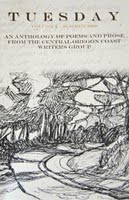
Whatcha reading? I've been in a book frenzy, poring through a mix of fiction, mystery and poetry. It's a scattered but satisfying book list.
After the rain
I wanted to lose myself in books. Because the day began with rain, I felt no guilt in this retreat. But then the sun blazed through the clouds and it became difficult to justify my languor.
Writer Amy Krouse Rosenthal knows this feeling, too:
Rainy Day
Rain is your pass to stay inside, to retreat. It’s cozy and safe, hanging out on this side of the gray. But then the sun comes out in the afternoon, and there’s disappointment, even fear, because the world will now resume, and it expects your participation. People will get dressed and leave their houses and go places and do things. Stepping out into the big, whirling, jarringly sunny world — a world that just a few minutes was so confined and still and soft and understated, and refreshingly gloomy — seems overwhelming.
— from Encyclopedia of an Ordinary Life
House of words

Submission Season
It’s autumn, officially.
Unofficially, it’s submission season. This time each year literary journals open their gates to accept a flood of poems and stories from hopeful writers.
It’s the best of times (publication!) and the most trying of times (rejection!). Lots of hurry, lots of wait.
I like poet Bruce Cohen’s take on the submission process. It’s funny, telling and true:
I wish I could tap together my ruby red L.L. Bean slippers and post questions to a Wizard of Oz Poetry Editor so I could unravel the esoteric truths and mysteries about what factors, what esthetics, he really considers when deciding whether or not to accept my poems, what the deal breakers are. . . .
Read the full essay (from Rattle, Spring 2009) here.
150 books
Featuring a mix of established and emerging writers, the list is an impressive show of poetic range. Poetry, it seems, is family-friendly, with blood and love lines threading the directory: father and son William and Kim Stafford; brothers Matthew and Michael Dickman; and husband and wife Ralph Salisbury and Ingrid Wendt.
It's a powerful endeavor, both creating the roster and reading the books, and I'm happy to recognize some of my favorites (Toluca Street by Maxine Scates; Here, Bullet by Brian Turner), and to add the others to my growing list of must-reads.
How about you? Have you read all 150? What are your favorites? Are there missing teeth in this ambitious compilation? I'm eager to know what you think.



